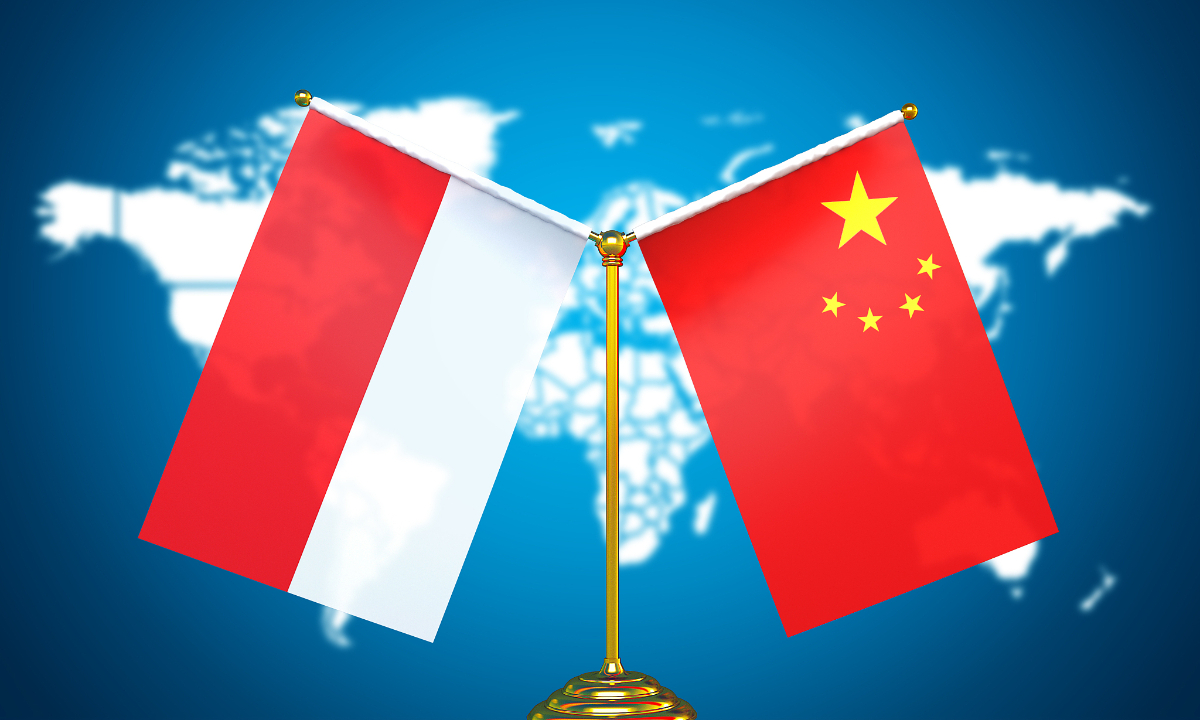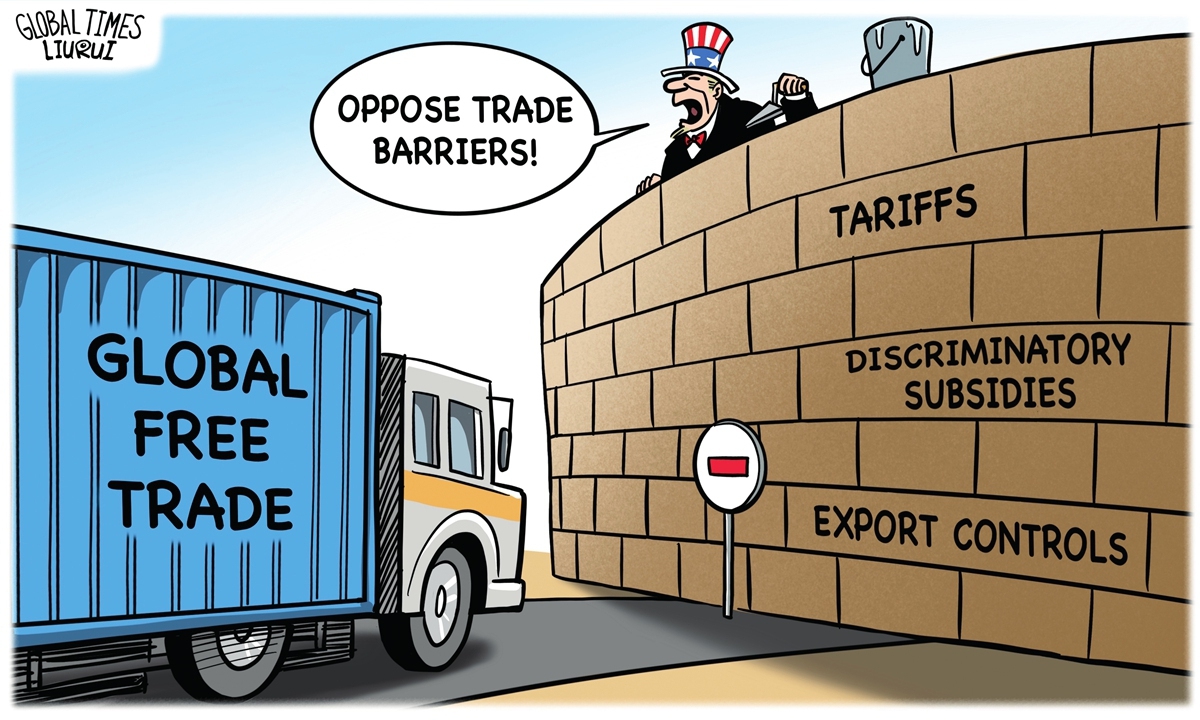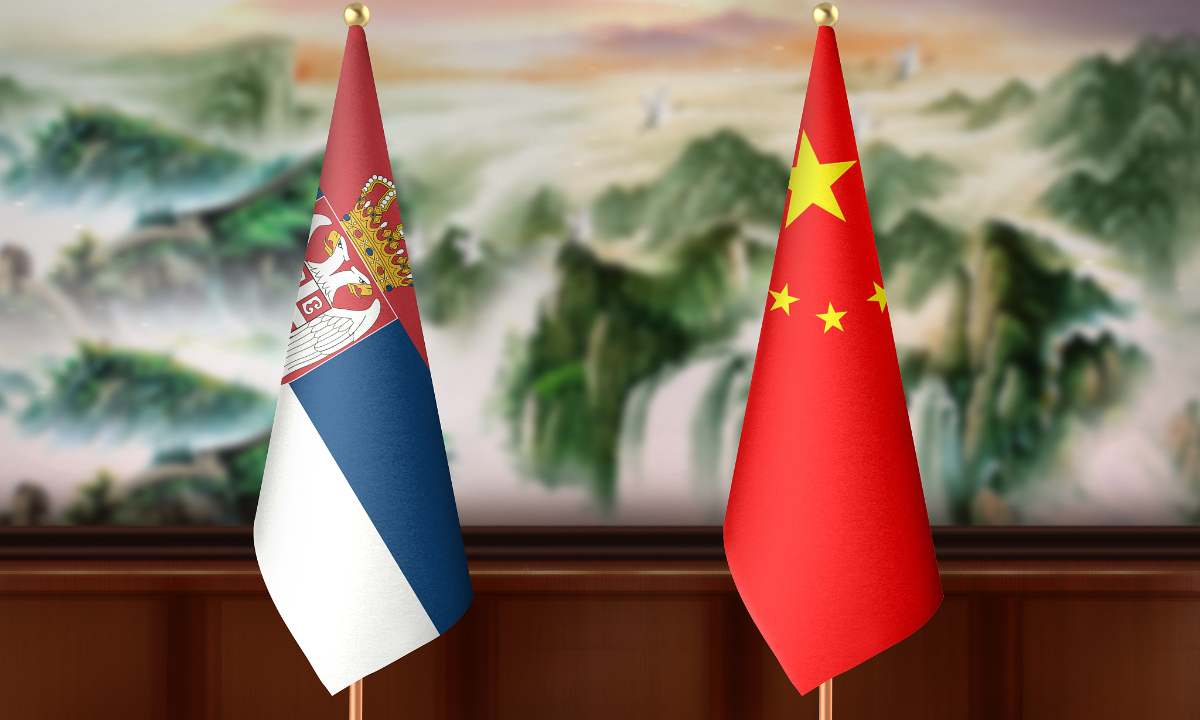Indonesia's possible 200% tariffs on Chinese goods may not have substantial impact on bilateral trade ties: expert

China Indonesia Photo:VCG
Indonesia's plan to impose tariffs of up to 200 percent on Chinese-made product has sparked certain concerns but may not have a substantial impact on bilateral trade ties, a Chinese expert said on Sunday, adding that optimism remains on the economic and trade relations of the two major trading partners in Asia.
Recently, Indonesia's Trade Minister Zulkifli Hasan proposed imposing import duties of up to 200 percent on textile products, specifically mentioning China, as a means to protect its domestic industries such as textiles, according to media reports.
The comments drew concerns over potential tensions between the two important trading partners in the region.
China has placed significant emphasis on its economic and trade relations with regional countries, including Indonesia. Likewise, Indonesia views China as an important trading partner and a source of investment. Despite external challenges, economic ties between the two nations have strengthened, Zhao Gancheng, a research fellow at the Shanghai Institute for International Studies, told the Global Times on Sunday.
"Although the tariff issue has drawn attention, it should not significantly affect the overall trade ties, given the high complementarity in bilateral trade," Zhao said, predicting it would have minimal impact on the broader economic relationship.
Last year, China exported to Indonesia about $500 million worth of toys, $1 billion worth of footwear, $2.5 billion worth of textile products and $430 million worth of ceramic products. These four types of light industrial products, which the new tariffs are targeted at, account for only about 7 percent of China's exports to Indonesia, according to media reports.
Just a few days after Hasan made the remarks, Indonesia's Coordinating Minister for Maritime Affairs and Investment Luhut Binsar Pandjaitan tried to play down the issue, saying on Friday that Indonesia's plan to impose import duties of up to 200 percent on textile products is not targeted at specific countries like China, Indonesia's media outlet Antara News reported.
Luhut explained that one step that has been taken so far is the extension of safeguard tariffs already imposed on several textile products. These tariffs apply to all imported goods, regardless of their origin, according to Antara News.
Luhut further emphasized that China remains a crucial strategic and comprehensive partner for Indonesia in trade and investment and Indonesia is committed to maintaining this relationship through ongoing communication and dialogue regarding policy changes, according to the news report.
"It is evident that there are differing opinions within the Indonesian government regarding how to handle trade differences with China in certain sectors," Zhao said.
Despite the shadow of tariffs, the prospects for trade between China and Indonesia remain promising, Zhao noted.
China is Indonesia's largest trading partner, the biggest destination for exports, and the largest source of imports.
Moreover, China makes up more than one-quarter of Indonesia's total trade, three times the value of its next largest trading partners, Japan and the US, according to the Asia Society of Policy Institute.
Indonesia has raised its export target to China for 2024 to between $65 and 70 billion, and has formulated several corresponding cooperation plans, according to media reports.
Given that trade between China and Indonesia enjoys tariff reductions and exemptions through the Regional Comprehensive Economic Partnership, better known as RCEP, bilateral trade is expected to further increase.
With Indonesia's new government led by president-elect Prabowo Subianto set to take office in October, there are high expectations for continuing or even expanding the strong economic and trade relations with China in the future, Zhao said.
Global Times



